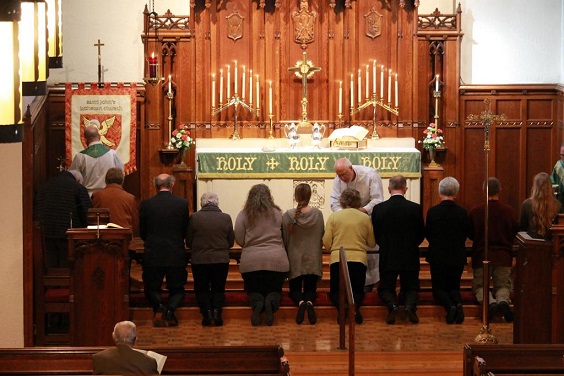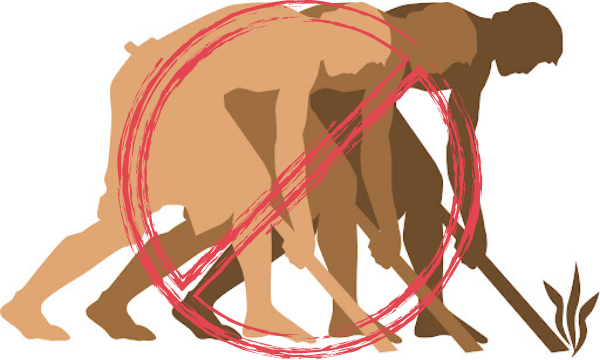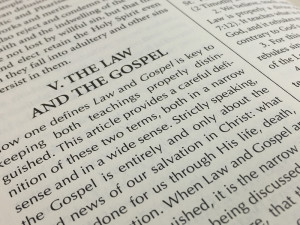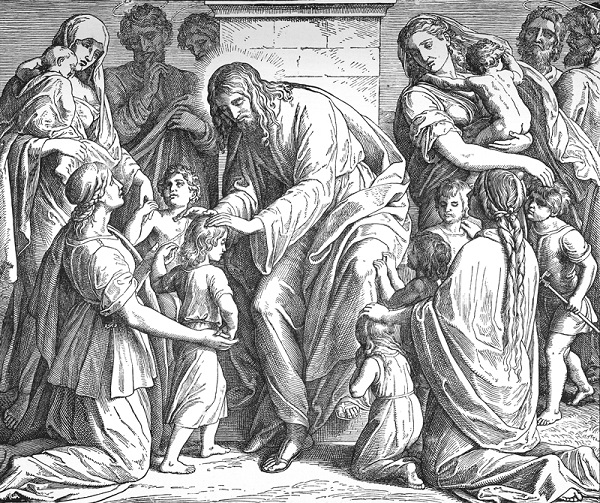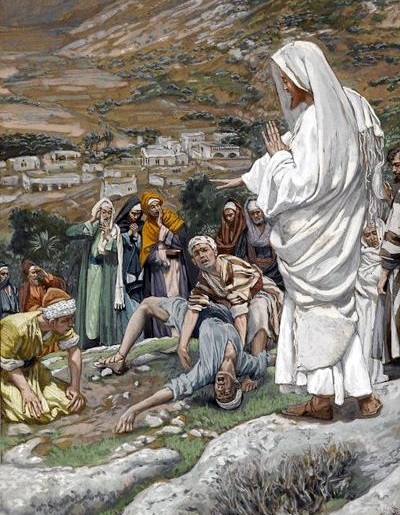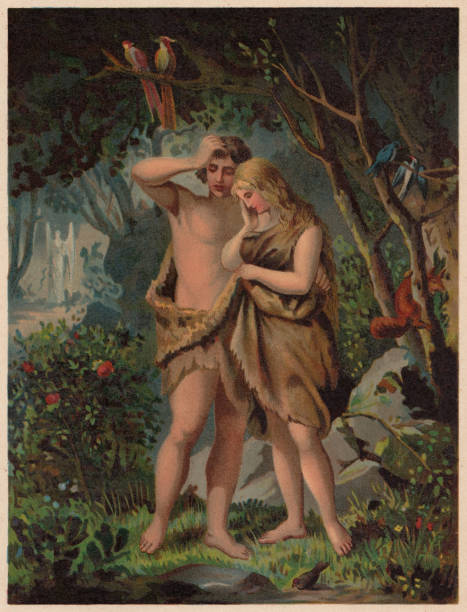Readings: Daniel 12:1–3 | Hebrews 10:11–25 | Mark 13:1–13
Text: Mark 13:1-13
About 30 years ago, the pop group R.E.M. popularized the phrase, “It’s the end of the world as we know it; and I feel fine.” At the time, they were reacting to political movements and the end of the Cold War. From their slant, it could be seen as the end of the world. In the world after Covid, many have thought that this is much closer to the end than we ever have been before. But a little perspective from history can mediate our excitement.
At the time of Jesus’ ministry, many Jews were convinced that the end was at hand. Popular literature included the Book of Enoch, an apocalyptic book that reflected the reaction to increasing hostility with the Gentile nations and anticipation for the Messiah to come. So, that’s the world the disciples are living in. That’s why they react in the way they do to Jesus’ words:

And as he came out of the temple, one of his disciples said to him, “Look, Teacher, what wonderful stones and what wonderful buildings!” 2 And Jesus said to him, “Do you see these great buildings? There will not be left here one stone upon another that will not be thrown down.” 3 And as he sat on the Mount of Olives opposite the temple, Peter and James and John and Andrew asked him privately, 4 “Tell us, when will these things be, and what will be the sign when all these things are about to be accomplished?”
Sensationalism sells. The old adage from journalism is true: “If it bleeds, it leads.” Tell people something exciting and new, and they’ll be dying to hear more. As we might have noticed in recent events, sensationalism and fear are a great method of social control. People get others to do what they want by employing fear.
The antidote to this fear is truth. But who are you going to turn to? We are surrounded by so many human opinions, all liable to err. That’s why Jesus’ disciples asked Him for an authoritative answer on this big topic. If we had been there, we would have asked too. Good thing the Holy Spirit caused His answer to be recorded for us to read and hear, too!
We can feel it in our bones that things are unraveling. From these momentous upheavals in human history and natural disasters, all people sense foreboding things about the future. But the big unknown is When? How will we know when it’s about to happen?

Jesus’ response doesn’t satisfy our longing. He says, “See that no one leads you astray. Many will come in my name, saying, ‘I am he!’ and they will lead many astray. And when you hear of wars and rumors of wars, do not be alarmed. This must take place, but the end is not yet. For nation will rise against nation, and kingdom against kingdom. There will be earthquakes in various places; there will be famines. These are but the beginning of the birth pains. But be on your guard.”
Perhaps it’s just a secret waiting to be revealed. That’s the idea behind every false Christ and false prophet who has said the Bible isn’t enough, or the Bible needs to be decoded for underlying messages only known by a select few.
Perhaps this time is the moment! Whether Romans desecrating the Temple at Jerusalem, or plagues, or Constantinople falling to the Turks (1453), or religious wars of the 17th century, or mass persecution of Christians in the 20th and 21st centuries—the end has not come yet. But every generation believes that this is the worse that it has ever gotten. Perhaps they are right, and perhaps we are right. But the end is not yet.
The fear of the end of the world has led people astray countless times! So, why is it that someone would lead others astray? The likes of Charles Taze Russell and the Watchtower Society, to Jim Jones and David Koresh, to the bold claims of the charismatic New Apostolic Reformation. They lead people astray because they themselves are led astray. Having come unhinged from the Word which Jesus clearly explains, they instead react to the circumstances and believe and tell others that this is really the moment!

But Jesus doesn’t let us go down the road of panic and sensationalism. It’s actually quite simple: The Church waits for His glorious return, as He promises. She endures persecution and hardship, bearing the cross after the model of Christ her Savior. The end comes when the end comes. Our Lutheran Confessions explain,
1 It is also taught among us that our Lord Jesus Christ will return on the last day for judgment and will raise up all the dead, 2 to give eternal life and everlasting joy to believers and the elect 3 but to condemn ungodly men and the devil to hell and eternal punishment.
4 Rejected, therefore, are the Anabaptists who teach that the devil and condemned men will not suffer eternal pain and torment. 5 Rejected, too, are certain Jewish opinions which are even now making an appearance and which teach that, before the resurrection of the dead, saints and godly men will possess a worldly kingdom and annihilate all the godless. (Augsburg Confession, Article XVII)
But, messages to the contrary of this simple explanation appeal to something in us which is also looking for early release, some exception to the rule, or something to make this life of tribulation easier.
The Lord’s answer does not satisfy our sensationalistic craving: See that you are not led astray…be on your guard. Acknowledge that the signs are there for sure. But don’t try to predict when the end is. They’re there to affirm that Jesus truly is Lord, truly is the once-for-all sacrifice for the sins of the world, and that He is most definitely coming again as He promised. It’s not essential that we have the timetable, but it is essential that we believe His Word and await our Savior’s return in glory. It is vital that we are not led astray by spiritual charlatans. But instead wait; be on your guard; endure suffering until the Lord exalts you.

The Lord knows that we can be sucked in by these things, which is why He continues:
For they will deliver you over to councils, and you will be beaten in synagogues, and you will stand before governors and kings for my sake, to bear witness before them. 10 And the gospel must first be proclaimed to all nations. 11 And when they bring you to trial and deliver you over, do not be anxious beforehand what you are to say, but say whatever is given you in that hour, for it is not you who speak, but the Holy Spirit. 12 And brother will deliver brother over to death, and the father his child, and children will rise against parents and have them put to death. 13 And you will be hated by all for my name’s sake. But the one who endures to the end will be saved.
Even when the ramifications of the end become personal—putting you in front of those in high positions or touching even your own earthly family—know that the Lord will neither abandon you, nor the Word He puts on your lips.
We theorized earlier about what motivates those who lead others astray in these last days. People lead others astray, but they themselves are led astray by the devil, “for the devil has come down … in great wrath, because he knows that his time is short!” (Rev. 12:12) The devil and the ungodly are moved by hatred and fear. The devil truly hates God, with a seething rage, and it vexes him to think that God would have bested him by taking the place of the guilty. Fear is at work in the desire to hide our works from God (John 3) or that there’s no way our Creator would ever forgive what we’ve done.
But opposed to what the devil, and darkened human minds are looking for, what is the Lord working for His elect in these times? It’s not deceit, but salvation. Your Lord is leading you on the true way which leads to salvation and eternal life. He is telling you the truth, even if every other man were a liar. And that’s reassuring in the din of fearmongering that the End Times creates when people try to face it with their own strength and merits.

“But the one who endures to the end will be saved.” This phrase right here drives Christ’s followers to their knees, because we can see the impact of this deceit in those closest to us. Christian parents cry heartfelt pleas for their children and grandchildren. I beg God that my own children, who hear the Word of God at home and who join the assembled believers now, would continue in this faith after it’s no longer our place to tell them what to do. Christian spouses long for their husbands or wives who are indifferent or hostile toward the Lord and His Church. As the saints gathered here today, we ache for those we know who have been missing from these pews, because earthly cares have drawn them away, or they have a personal beef with the man who fills the pastoral office. We want them to endure to the end and be saved.
That’s where our Lord, who hears our cries, reassures us in these evil days. It’s not just up to us, and it’s not a matter of survival of the fittest. It’s His grace which He gives to sinners, and His strength which He gives us in our weakness that will make sure we endure. And it’s His incredible work in people’s hearts that we hope in as we pray for ourselves, our families, and our absent brothers and sisters.
Our Lord is with us no matter what the years before His return will bring. Uncertainty and foreboding are not our lot, but watchfulness in His Word and guarding against the spiritual dangers which surround us. That’s not to say it will be easy or quick, but we will see that the Lord has fulfilled and is fulfilling His promises: “Behold, I am with you always, even to the end of the age.” and “I have said these things to you, that in me you may have peace. In the world you will have tribulation. But take heart; I have overcome the world.” (Matt. 28:20; John 16:33)
Come quickly, Lord Jesus! Amen!



